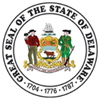Epidemiologist I (#MDAB01)
| ||||||||||||||||||||||||||||||||||||||||||||||||||||||
| CLASS: MDAB01 |
EST:
7/1/1988 |
REV:
5/12/2010 |
FORMERLY JOB CLASS:
73740 |
||||||
| CLASS: MDAB02 |
EST:
7/1/1993 |
REV:
|
FORMERLY JOB CLASS:
73739 |
||||||
| CLASS: MDAB03 |
EST:
5/12/2010 |
REV:
|
|||||||
| CLASS: MDAB04 |
EST:
5/12/2010 |
REV:
|
|||||||

 Notify Me when a Job Opens for the above position(s)
Notify Me when a Job Opens for the above position(s)